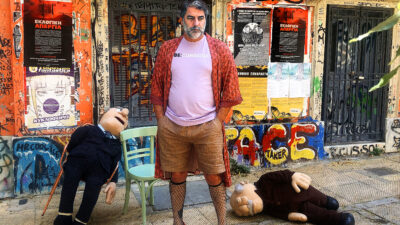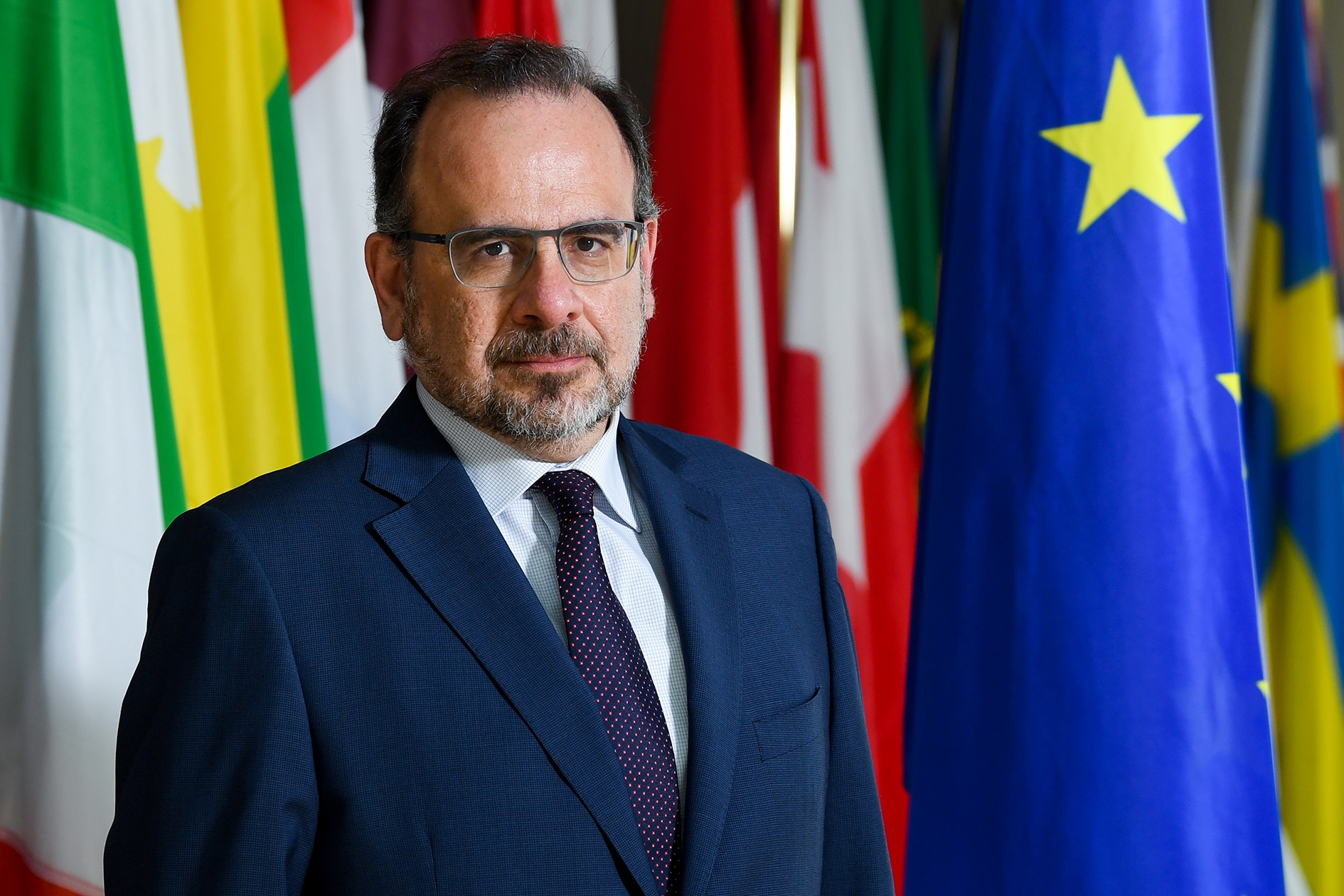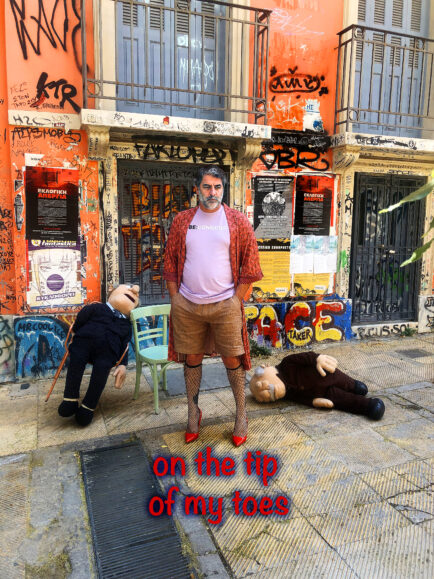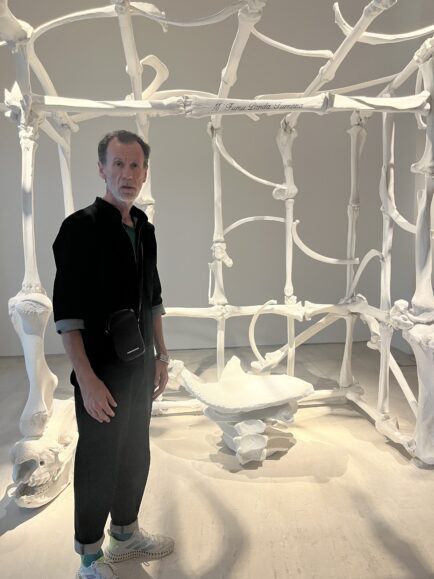The President of the European Economic and Social Committee, Luca Jahier decided to come to Athens and join the IMI mission (temporary study group on immigration and integration) in order to ensure continuity in EESC activities in the field of migration.
Here is what President Luca Jahier said to Vasiliki Grammatikogianni about the big challenge of the new century
Vasiliki: You are in Greece in the frame of a European project of civil society organizations that aims to ensure migrant integration. Could you please present to us briefly this project?
Luca Jahier: The visit to Athens of the EESC’s permanent study group on Immigration and Integration (IMI) focuses on the role of civil society organizations in ensuring migrant integration and inclusion in both society and at work. The EESC acts as facilitators between EU institutions and civil society organizations working on migration policy and migrant integration.
“Making integration work: towards a more inclusive European society” is also the theme of the upcoming European Migration Forum – the dialogue platform on migration, asylum and migrant integration gathering together over 100 participants across Europe- that will be held for the sixth time on 2-3 June 2020 and to which this two-day visit will contribute by documenting good practices and identifying problems and potential solutions.
During these last two days, we have had good discussions with the UNHCR Representative in Greece Mr. Philippe Leclerc, as well Gianluca Rocco Chief of IOM Greece, Ms. Vania Nedeltcheva, head of Migrant Point of Athens Labour Union Organisation (EKA). We’ve also had meetings at the Secretariat General of Migration Policy, Reception, and Asylum, at the Hellenic Confederation of Professionals, Craftsmen, and Merchants (GSEVEE) and at the Athens Coordination Center for Migrant and Refugee Issues (ACCMR).
Vasiliki:The outburst of the refugee crisis in Greece these days was a coincidence or you chose to come to Greece now because of this?
LucaJahier: It is certainly not a coincidence. We are here because people never stopped embarking on dangerous journeys, fleeing from wars, conflicts, and persecution, and yet the EU has not reached a common solution on migration. Five years on, refugees and migrants are losing their lives trying to reach Europe for safety. We believe it is high time for Europe to take responsibility.
We are in Greece to show our full support and solidarity to the Greek authorities and civil society. It is not acceptable that some Member States opt-out of our joint obligations and leave others to carry a disproportionate burden in managing migration flows.
We need to find common solutions with unity and determination, and by strengthening the principle of solidarity so it is not perceived as an empty word. Managing our borders and reforming the EU’s asylum law is the responsibility of Europe as a whole and cannot be further delayed.
We are here to strongly call for a political answer based on a truth-based narrative of facts and reliable solutions for border control, security, reception, and integration of asylum-seekers.
Vasiliki:You had a lot of meetings with minister Mr. Mitarakis, with UNHCR, with NGO’s with the municipality, with labor partners and other stakeholders. Could you tell us the conclusion of these meetings? What was the most impressive or urgent information?
LucaJahier: All meetings have been extremely informative and useful to better understand the situation and challenges at stake and confirmed the fact that Greece cannot be left alone in managing migration flows.
It is also evident that the efforts made by the Greek government, by the regional and local authorities as well as by NGOs since 2016 have been extraordinary and all actors, with the support of the international and EU organizations, have made all their best in dealing with migrants’ reception.
Now it is high time for Europe to show real solidarity to Greece. The migration will continue and we must be equipped with a European migration system based on solidarity, responsibility and mutual recognition of asylum applications.
Vasiliki: European Commission announced 6 points plan for the refugee crisis in Greece. Are you satisfied? What EESC suggests?
LucaJahier: I welcome very much President von der Leyen’s announced measures to support Greece to manage extraordinary migration flows. Neither Greece nor the migrants and refugees should suffer the consequences of tragic events decided by others. The immediate mobilization of resources, a fresh deployment of border guards, as well as the announced actions to find solutions for unaccompanied migrant children on Greek islands, are clear and tangible signs of EU solidarity. However, this is not enough. I believe that we should find a common EU response to this new situation, and, above all, we should continue the agreement with Turkey. We need to renew the deal that we have had with Turkey in recent years, where the Union has allocated 6 billion euros to finance the numerous refugees and migrants who have been on Turkish territory. Looking to the future, a prompt collective action towards drawing up a New Pact on Migration and Asylum should definitely include the key dimension of integration, promote humanitarian corridors and legal pathways for people in need. Adequate financing for migration and border management in the next multi-annual budget is also key. At the EESC, we believe that sustainable long-term integration policies covering language training, the screening and recognition of skills and competencies, and vocational training should be put in place. Evidence shows that well-managed migration delivers positive results for the economy and society as a whole. The EESC will monitor closely the developments and is ready to support the Commission’s ongoing efforts in the field of migration, as I agreed in a meeting with Ylva Johansson, European Commissioner for Home Affairs earlier this week.
Vasiliki: Do you agree with the detention center that the Greek government announced?
LucaJahier: The images of children and families living in degrading living conditions, sleeping on mats and cardboard boxes, exposed to worsening weather conditions, with no facilities are unacceptable and require immediate action. Their protection must be a priority for the EU.
I do understand that the reception capacities of hot spots located in the islands are well above their capacities and we need to provide proper shelter to these people. We need to protect families and vulnerable children’s lives. The new facilities being envisaged by the government are conceived to serve this purpose, however, dialogue and consensus-building with local authorities are key to ensure that the centers will effectively work.
Vasiliki: According to scientists one billion people will be forced to abandon their countries in Africa for the next 30 years, because of climate change. Do you think that the EU has taken this development under consideration?
LucaJahier: Environmental degradation mainly induced by climate change is one of the primary causes of migration and displacement in the world. Each year 25 million people are displaced as a result of natural disasters, which is to say the brutal degradation of their environment. This is about three times more than the number of people displaced by war or violence each year.
This number will obviously increase. Unfortunately, so far, the national and international response to this challenge has been limited. The Global Compact for Migration, adopted in December 2018, recognizes climate change as a major driver of migration worldwide and suggests a number of steps that can be taken to address the migration challenges arising from climate change and natural disasters. The Task Force on Displacement, established by the Paris Agreement in 2015, has also made a number of recommendations to policymakers in the international climate change negotiations, while the Platform on Disaster Displacement was established in 2016 to supervise the implementation of the Protection Agenda from the Nansen Initiative, which seeks to protect the rights of those displaced by disasters. Despite this, there is neither a clear definition of “climate refugee”, nor are they covered by the 1951 Refugee Convention. Many developing countries have urged the EU to afford climate migrants the status of refugees. However, individual EU Member States have not supported the idea of creating a new category, that of ‘climate refugee’. While the EU has so far not recognized climate refugees formally, it has expressed growing concern and has taken action to support and develop resilience in the countries potentially affected by climate-related stress. We need to act now if we want to correct the trend and extreme weather events, desertification, rising sea and ocean levels and loss of biodiversity. We know that there are already millions of climate refugees and that it is the poor who are suffering the most in this climate emergency.
Vasiliki: My last question is about peace. Everybody knows that wars are the main reason that fuels refugees and immigrants flow, but no one talks about this. I’d like your comment.
LucaJahier: We are concerned about human suffering and the ongoing fighting has caused in Idlib. All actors should to whatever it takes to deescalate and commit to a sustainable and long-lasting ceasefire and a political solution in line with UNSC Resolutions. Providing humanitarian aid and access to populations in need is a key priority; the EU is ready to further strengthen its support. We also have to continue mobilizing resources to reduce the suffering of the civilian population to provide shelter, food, and medicine. The protection of civilians is a legal obligation and a moral duty as well as a matter of urgency.
And the EU Member States also continue to do their part. Humanitarian access needs to be ensured, including the most remote areas, where the most vulnerable people are. I underlined this in all my contacts over the past days. The extraordinary Foreign Affairs Council next week will be an opportunity to focus on the latest developments and to continue our joint work on all fronts. We need to ensure that our collective action has the highest possible impact if we want to effectively address the crisis and to contribute to paving the way for a political solution.
Everybody, especially the Syrian regime, needs to urgently re-engage in a political process under the auspices of the United Nations. There is only a political solution to this nine-year struggle.
The future of Syria lies in the hands of the Syrian people and the EU should continue to work with Syrian civil society to promote democracy and human rights in support of peace and stability in Syria.
There is no more time to waste. As Europeans, we know all too well that without peace, there is no life, only human tragedy.
















